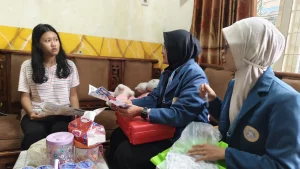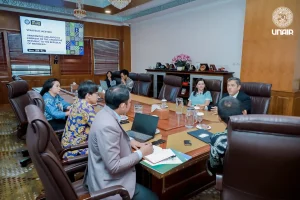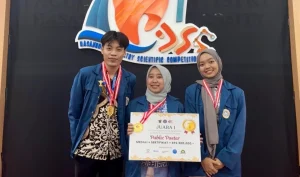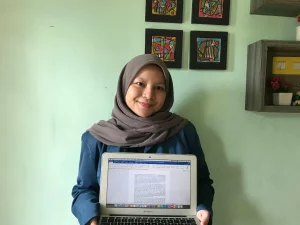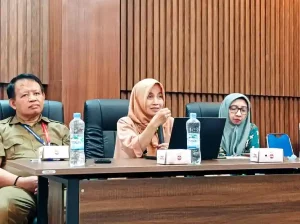UNAIR NEWS – Every company is expected to provide a budget for Corporate Social Responsibility (CSR) program. Let alone if the company is related to natural resource potentials excavation. CSR funds are typically given to the local community around where the company does its business.
To date, there have been numerous companies which distribute a big number of CSR funds. However the question is, are the overwhelming funds are right on target and definitely make a simultaneous positive impact? To answer this, we can have a look at the condition of CSR recipients all this time. Are they continuously developed, particularly in the aspects of social, economy, and environment preservation?
A Professor at Faculty of Social and Political Sciences (FISIP) UNAIR Prof. Dr. Mustain Mashud, Drs., M.Si says that there are a lot of things need to be prepared by a company before starting its business; moreover if the business is specifically related to natural resources management and excavation. In general, the company conducts an environmental impact analysis which includes an analysis of the possibilities on pollution, heavier traffic in the business area, and many others.
Nevertheless, there is a more important thing; an analysis of the community’s acceptance of the company’s existence. There is always a standard countermeasure treatment for problems concerning anything but people. However, if the problem arises from the impact of friction with the community, the formula needed to solve it in every region certainly differs from one another.
The community’s acceptance is also related with the distribution of CSR funds since the local community around where the business runs has to be prioritized to receive the funds. Therefore, since the beginning, a communication between the company and the local community is needed. The communication should include a discussion about the implementation of CSR program.
The company should build a comprehensive mapping on the condition, necessities, and potential of the community. Therefore, CSR program can be implemented right on target. “CSR is not merely a social donation or charity, about building bridges or giving funds for an event at the village. More than that, CSR has to be allocated for programs to develop the community,” says the Sociology lecturer.
There should be a meticulous further review from the company. The company party is not supposedly reluctant to conduct it. The community’s necessities have to be mapped and a direct survey regarding what the community needs has to be done. After that, involve the element of community or local public figures to mutually formulate programs.
For instance, the region has potential on batik then a workshop regarding batik which involves a competent party should be conducted. Besides the facilities and infrastructures, the funding should be prepared as well. Likewise, if the region has potential on chicken farming then it is better to prepare anything necessary for the community to keep it working and maintain the sustainability of the business.
“Academicians or researchers can take part as a party who supervise the mapping process. Later on, they will also be involved in doing the evaluation,” Mustain mentioned.
Therefore, the community’s economy can gradually be more powerful and stronger. It is possible that some time the program will no longer receives CSR help anymore; since when the program is independent and powerful, the community will need no more help in the field. Thus, the available CSR fund can be disbursed for other under developed programs.
If since the beginning the company has opted to use a basic concept which is based on such local condition, necessities, potential, social funding, and community network then in general the community will cordially accept the company. Moreover, the CSR will also bring concrete benefit. “Ideally CSR should become a productive investment, not a one-time funding,” says the born Tulungagung professor.
The problem is, not all companies refer to the ideal standard. Moreover, Mustain reveals that he has observed a district where considerable companies exist yet the general pattern of CSR there is merely a present or a one-time funding.
Consequently, there is no education, learning, and development which improve the quality of the local community. What the community needs has only been found out by the company from the sub-district head or the village chief. Hence, there is no continuous intensive interaction between the company and the local community. The community’s transformation to be more powerful cannot be comprehensively realized.
Whereas if CSR is carefully managed based on the ideal standard, it will necessarily be kept accountable; there are no parties who have the chance to do fund incorrect disbursement. Every part of the local community will take control.
The man who once became the Head of Program at Sociology UNAIR believes that CSR program which is offered by private companies in Indonesia will enable an independent community. CSR program should be based on community development approach as well. Through the approach, CSR program is expected to develop the community based on their necessities and potential. Therefore social welfare and economic reinforcement will be materialized. (*)


